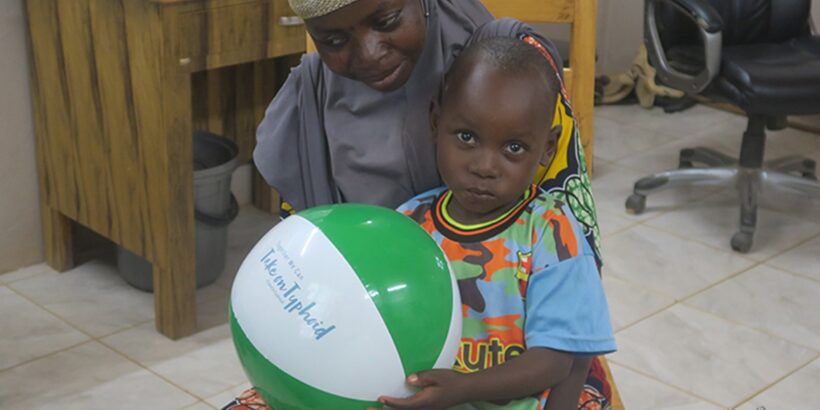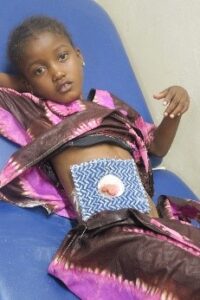To read this blog in French, please click here.
Typhoid, a bacterial infection, can be cured with antibiotics when diagnosed and appropriately treated in a timely manner. However, typhoid intestinal perforation (TIP), a severe and potentially life-threating late complication of typhoid, can occur two weeks after the onset of initial symptoms, which include fever, abdominal pain, and vomiting. If a person does not receive appropriate treatment, TIP, discovered once a person has gone into surgery, is often diagnosed by the presence of discrete holes in the intestine.
Data on TIP predominately come from Anglophone countries due to non-English publication and citation biases, meaning that papers written in languages other than English are less likely to be published and/or cited in broader academic literature. Despite the high burden of enteric diseases in Francophone Africa, there are a lack of available data on TIP from these countries.
Scoping review details TIP burden in Francophone Africa
Francophone countries are underrepresented in previous systematic reviews of TIP in Africa. To address this knowledge gap, a new scoping review published in PLOS Global Public Health highlights the incidence and morbidity of TIP in Francophone Africa using an extended search algorithm of countries with a documented rate of TIP between January 1, 2000 – January 12, 2023. There were 12 Francophone African countries represented in the 32 studies identified.
The scoping review found the median age of TIP patients to be 20 years, contributing to a median of 35% of acute peritonitis cases (inflammation of tissue inside the abdomen). Mortality rates ranged from 6-37%, while rate of complications ranged from 15-92%. The highest rate of ileostomies (surgery in which an opening is made in the abdominal wall) – for TIP – were reported in Niger.
Morbidity of TIP is extremely high in Francophone African countries, exacerbated by limited access to appropriate and timely healthcare. Consequently, patients tend to present with severe disease, associated with an increase in post-operative complications such as surgical site infections, malnutrition, and hernias. These complications can be very costly and further exacerbate post-operative complications.
This scoping review highlights the need for including data in the Francophone literature, as these data are critical to informing decision-makers about the burden of TIP – and typhoid – in Francophone Africa, and the need for introduction of typhoid conjugate vaccines (TCVs).
Next steps
While long-term improvements in water, sanitation, and hygiene (WASH) infrastructure are crucial, we are fortunate to have three safe and effective World Health Organization-prequalified TCVs. To date, three African countries – Liberia, Zimbabwe, and Malawi – have introduced TCVs into their national routine immunization programs. Although no Francophone African countries have introduced TCV, Burkina Faso is slated to introduce soon. TIP and non-traumatic intestinal perforations serve as valuable disease indicators for policymakers considering new vaccine introduction priorities. When policymakers better understand typhoid complications and the health system and societal costs of TIP, they are better able to make informed and strategic decisions about TCV introduction.
A coordinated approach that includes TCVs and WASH, holds the key to a future where the most underserved and vulnerable populations can lead lives protected against typhoid.
Cover photo: Child during follow-up visit after being treated for typhoid intestinal perforation. Credit: CVD.




